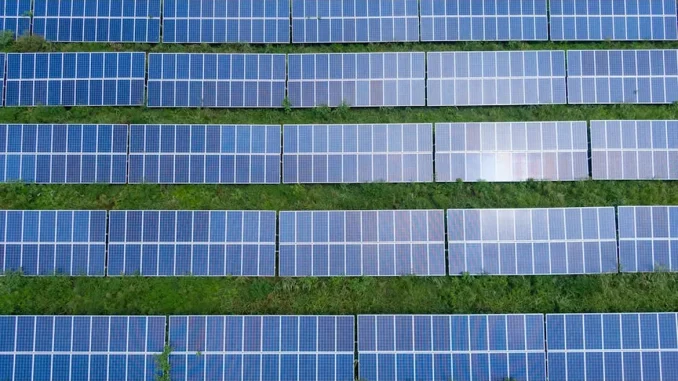
In an era where the environmental and economic ramifications of energy consumption are becoming increasingly scrutinised, several European nations stand out as paragons of energy efficiency and sustainability. France, the United Kingdom, Germany, the Netherlands, and Italy each deploy unique strategies and solutions, underscoring that there is no universal blueprint for achieving a greener future. By integrating nuclear power, renewable energy, urban planning, and innovative policies, these countries are meeting their energy needs while significantly reducing their carbon footprints.
Read more about sustainable development.
France’s commendable energy efficiency is largely attributed to its reliance on nuclear power, which accounts for over 70% of the nation’s electricity production. This dependence on nuclear energy has substantially minimised greenhouse gas emissions while satisfying the country’s substantial energy requirements. The International Energy Agency (IEA) notes that France’s nuclear strategy has been pivotal in curbing its carbon emissions. Yet, France’s commitment to energy efficiency extends beyond nuclear power. The implementation of stringent building regulations, such as the Thermal Regulation 2020 (RE2020), ensures that new constructions meet high energy performance standards, thus reducing overall energy consumption. Additionally, France’s extensive network of public transportation, including trains and buses, plays a vital role in the nation’s energy strategy by encouraging the public to opt for mass transit over personal vehicles, thereby further cutting down energy use.
The United Kingdom has made significant leaps in energy efficiency by transitioning from coal to renewable energy sources. In a historic milestone, the UK achieved a coal-free period exceeding two months in 2020, signalling a decisive shift towards sustainability. Substantial investments in wind and solar power, exemplified by offshore wind farms such as Hornsea One, have led to wind energy alone providing nearly 25% of the UK’s electricity by 2021. The UK’s focus on energy efficiency extends to residential and industrial sectors through initiatives like the Energy Company Obligation (ECO) scheme, which mandates energy suppliers to promote measures such as insulation and heating system upgrades. These efforts align with the UK’s ambitious objective of attaining net-zero carbon emissions by 2050.
Germany’s Energiewende policy, or energy transition, positions the country as a global leader in energy efficiency and renewable energy. This comprehensive strategy aims to phase out nuclear power, reduce reliance on fossil fuels, and foster renewable energy adoption. Germany has set rigorous standards for buildings and appliances to enhance energy efficiency, with the Energy Saving Ordinance (EnEV) mandating that new buildings consume significantly less energy. Germany’s commitment to renewable energy is evident through substantial investments in wind and solar power, which accounted for over 46% of the nation’s electricity production in 2020. The industrial sector also embraces energy-efficient technologies and practices, further positioning Germany as a pioneer in sustainable energy practices.
The Netherlands distinguishes itself with an innovative approach to energy efficiency, particularly in urban planning and transportation. The nation promotes cycling as a primary mode of transport, supported by dedicated bike lanes and extensive cycling infrastructure. According to the Dutch Cycling Embassy, 27% of all trips in the Netherlands are made by bicycle, substantially reducing the country’s energy consumption and carbon footprint. Furthermore, the Netherlands invests heavily in sustainable infrastructure, such as energy-efficient buildings and smart grids. The Energy Agreement for Sustainable Growth aims to achieve a 16% share of renewable energy in the total energy mix by 2023, underscoring the Netherlands’ commitment to energy efficiency and sustainability.
Italy has made notable strides in enhancing its energy efficiency by concentrating on renewable energy sources, particularly solar power. The country boasts one of the highest solar power capacities in Europe, with over 22 gigawatts installed by 2020. This significant investment in solar energy has contributed to a reduction in overall energy consumption and carbon emissions. Italy also implements measures to improve the energy performance of buildings and industries through the National Energy Efficiency Action Plan (NEEAP), which outlines strategies to enhance energy efficiency across various sectors. These initiatives have resulted in a considerable decrease in energy use, aligning with Italy’s dedication to sustainable practices.
The energy efficiency strategies employed by France, the UK, Germany, the Netherlands, and Italy illustrate the diverse approaches nations can take to achieve sustainability. France’s reliance on nuclear power showcases the potential for low-carbon energy sources, while the UK’s transition from coal to renewables highlights the impact of policy shifts. Germany’s Energiewende underscores the importance of comprehensive national strategies, and the Netherlands’ focus on urban planning and transportation offers valuable insights into energy-efficient infrastructure. Italy’s emphasis on solar power and energy-efficient buildings demonstrates the role of renewable energy in reducing overall energy consumption.
As we look to the future, the continued advancement of renewable energy technologies and energy-efficient practices will be crucial in shaping global energy consumption. France may further diversify its energy mix by incorporating more renewable sources alongside nuclear power. The UK is likely to persist in its investment in offshore wind farms and other renewables, driving its transition towards net-zero carbon emissions. Germany’s Energiewende will probably evolve, potentially integrating new technologies and strategies to maintain its leadership in energy efficiency. The Netherlands may further enhance its urban planning and transportation infrastructure, promoting even greater energy conservation. Italy’s focus on solar power and energy-efficient buildings will likely expand, contributing to its long-term sustainability goals.
These nations’ continuous innovation and refinement of their energy efficiency strategies will set new benchmarks for others to follow, paving the way for a more sustainable and energy-efficient future. Their collective efforts not only serve their respective countries but also offer valuable lessons and inspiration for the global community, proving that a sustainable and efficient energy future is within reach.


Be the first to comment